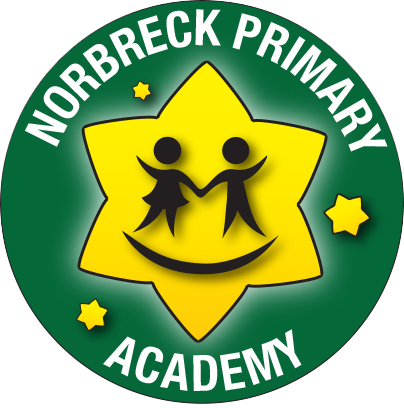EYFS Baseline Check
Understanding the Reception Baseline Assessment (RBA) at Norbreck Primary Academy
As your child embarks on their exciting journey in Reception, you may have heard about the Reception Baseline Assessment (RBA) and wondered what it involves. Rest assured, the RBA is a friendly, stress-free way for teachers to understand your child’s starting point at school and is designed to be a positive experience. Here's everything you need to know as a parent:
1. The RBA Isn’t a Test
It’s natural to feel concerned about the idea of an assessment, but the RBA isn’t a test in the traditional sense. It happens during the first few weeks of Reception and involves fun, informal activities that children often don’t even realise are part of an assessment. The goal is not to judge your child, but to gain a snapshot of their skills and knowledge as they start their primary school journey.
2. Children Enjoy the RBA
Most children find the RBA enjoyable and engaging. It is carried out individually by their teacher or teaching assistant, who spends around 15 minutes with each child. These one-on-one sessions are a fantastic way for teachers to connect with students early on and build a positive relationship. The tasks are fun and interactive, often involving hands-on activities that feel more like play than testing.
If your child gets distracted or loses interest, the teacher can pause the assessment and finish it later – there’s no rush.
3. The Tasks Are Tailored to Their Age
The RBA includes a variety of activities designed specifically for Reception children, focusing on two key areas: maths, and literacy and communication. Most tasks are hands-on, involving activities like sorting or moving objects, while only a small portion requires verbal responses. This ensures that every child, regardless of their communication skills, can participate and enjoy the assessment.
4. No Pressure for Your Child
The RBA is pressure-free. There are no worries about failing or meeting a specific score. Instead, the tasks gradually increase in difficulty, and if something is too challenging for your child, the teacher will simply move on to something else. The goal is to make sure that your child has a positive, stress-free experience during their early days at school.
5. There’s No ‘Pass’ or ‘Fail’
The RBA isn’t about grading children – it’s about assessing the starting point for the whole class. There is no pass or fail, and your child won’t be ranked or judged based on their performance. The RBA results provide valuable insights into your child’s overall development, which helps teachers plan lessons that support everyone’s needs. Seven years later, the results will be compared with Year 6 SATs to show how well children have progressed through primary school.
Importantly, you won’t receive individual scores from the RBA. Teachers will receive brief statements about each child’s skills and abilities, which may be shared with you during parent-teacher consultations or as part of school reports. If you’d like to know more, feel free to ask your child’s teacher for further details.
6. No Extra Preparation Needed
There’s no need to prepare your child for the RBA. It’s designed to be a natural part of their early school experience, and there’s no benefit in practising activities ahead of time. Preparing children for the assessment is actually discouraged, as the aim is to assess their skills in a relaxed, organic setting.
7. Helping Teachers Support Your Child
The RBA provides invaluable insights that help teachers understand your child’s current level of knowledge and learning style. This allows them to plan lessons that challenge your child in areas where they’re strong and provide extra support where needed. The assessment ensures that every child receives the best possible start to their school journey and helps the teacher tailor their approach to meet individual needs.
At Norbreck Primary Academy, we want every child to thrive. The RBA plays a crucial role in helping us provide the right support from day one, ensuring your child has the best possible experience in their first year of school.
We hope this helps clarify the Reception Baseline Assessment process for you. If you have any further questions, don’t hesitate to reach out to us.
